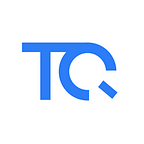Rapid Innovation: Tezos Tenderbake Testnet Spawned
If you’ve been following Tezos then you are likely familiar with the fast pace of evolution in the ecosystem. Having undergone 5 upgrades to the base protocol to date, Tezos has a proven track-record of seamless updates facilitated through its on-chain governance mechanism. The pace of innovation has recently accelerated with a cadence of roughly one upgrade every 3 months.
To continue on this path of constant evolution, the team at Nomadic Labs recently spawned a new Tezos testnet running a new type of consensus algorithm called Tenderbake. First outlined in 2020 (Tenderbake — A Solution to Dynamic Repeated Consensus for Blockchains), this new algorithm is the product of global collaboration between engineers and academic researchers. More recently, the viability of the proposed consensus algorithm was supported by the formal verification of Theorems 5 and 6 outlined in that paper. Tenderbake is now closer than ever to a fully-featured economic protocol, and is currently being tested to identify potential implementation errors and optimize performance. You can follow the activity on this new testnet here — this infrastructure was created in cooperation with the team from Baking Bad, who generously provided help and support.
So, what is Tenderbake & why does it matter?
Tenderbake uses a classical style of BFT consensus algorithm adapted to handle an arbitrarily large amount of validators. It differs from Tezos’ current Emmy+ (sometimes called a Nakamoto-style algorithm). Replacing the consensus algorithms represents a significant change to the network, which brings along with it some noteworthy advantages.
Deterministic Finality — with Tenderbake, a block that has just been appended to the chain of some node is known to be final once as soon as two additional blocks appear on top of it, regardless of network latency or network splits. This means that chain forks, if they occur, will resolve after just two blocks, regardless of network latency or network splits*. Synchronous consensus algorithms need to make a conservative guess regarding the speed of the network, but Tenderbake doesn’t and can thus boast much shorter block times, and much faster finality than the current Emmy+ algorithm. Tenderbarke can theoretically achieve block times of 1sec or lower.
Tenderbake: A Major Step Forward
While the Tezos network has seen its share of significant upgrades over the last 3 years, Tenderbake might be the biggest on the horizon to date. The near-instant finality that Tenderbake unlocks will allow users to be sure their transactions are finalized as soon as a block is created (which is not the case in Nakamoto-style blockchains like Bitcoin, Ethereum, and the current version of Tezos). Although it is only in a test stage at this time, the excitement surrounding the testing and what it could mean for future developments is reflective of the community engagement that is possible when you have a thriving on-chain upgrade model like the one that exists on Tezos.
Looking to learn more about Tenderbake? Check out these resources:
Tezos Agora — Releasing Tenderbakenet
Nomadic Labs — A look ahead to Tenderbake
“Tenderbake — A Solution to Dynamic Repeated Consensus for Blockchains”
*Assuming 2/3rds of the validators on the network are honest.
